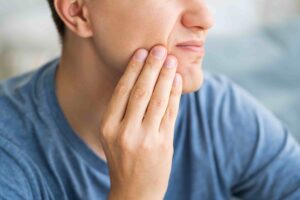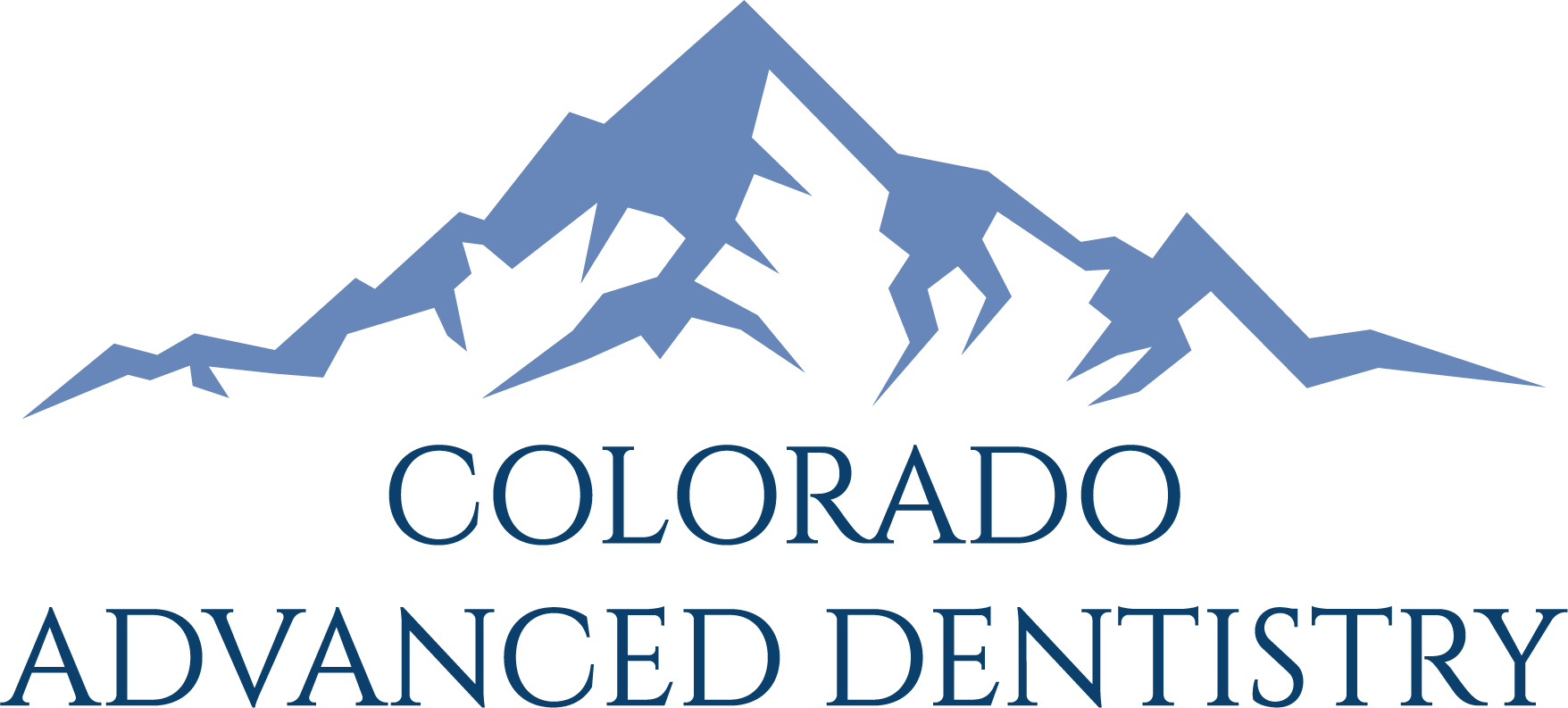Gingivitis Treatment in Lakewood, CO
Colorado Advanced Dentistry Creates Healthy Gums
Gum disease is quite common, but many patients do not engage in proactive behavior to treat and reverse it. Colorado Advanced Dentistry is here to help patients learn how to take care of their gums, as well as to provide the dental services needed to counteract gum disease. Periodontal and gum diseases impact many Lakewood, CO residents. But Gingivitis and periodontitis can be effectively treated by our compassionate and skilled dental professionals. Read below to learn more about periodontal and gum diseases and schedule an appointment today.

What is Gingivitis, and What Can I Do About It?
Gingivitis is a mild form of periodontal disease, but that doesn’t mean you should neglect it. As any dental professional at Colorado Advanced Dentistry would tell you, it can progress and grow worse. Therefore, any patient with gingivitis must spend more time taking care of their teeth. Gingivitis results in red and swollen gums which bleed easily. Typically, poor dental hygiene is the primary cause of the disease. The good news is, you can reverse gingivitis with professional treatment and at-home corrections to oral hygiene and eating and drinking habits. Other factors which contribute to gingivitis include:
- Diabetes
- Smoking
- Aging
- Genetic predispositions
- Systemic diseases and conditions
- Stress
- Poor nutrition
- Hormonal fluctuations
- Pregnancy
- Substance abuse
- HIV infection
- Some prescription medication use
Prevent Periodontitis By Immediately Correcting Gingivitis
Unfortunately, untreated gingivitis leads to periodontitis, which is a more severe condition. While similar to gingivitis, the effects of periodontitis are worse. Periodontitis happens when plaque spreads and grows beneath the gum line. Because plaque contains bacteria, toxin irritates the gums. They also cause a chronic inflammatory response, causing the body to turn on itself. The tissues and bones separating your teeth break down. As a result, the gums separate from the teeth and form pockets that frequently become infected. As it progresses, the pockets deepen, and the infections grow worse. In the end, Colorado Advanced Dentistry often removes teeth due to periodontitis. There are numerous forms of periodontitis, the most common being:
Aggressive Periodontitis
You can be clinically healthy and still suffer from periodontitis. In fact, aggressive periodontitis most often occurs in those who are healthy. This version of periodontal disease features rapid attachment loss and bone destruction, as well as significant familial aggregation. As stated above, many cases of periodontitis begin with gingivitis. If you want to prevent severe symptoms, it is best to address the problem immediately.
Chronic Periodontitis
The symptoms of chronic periodontitis include inflammation in the supporting tissues of the teeth, progressive attachment and bone loss, and other severe symptoms. It is characterized by noticeable pocket formations and gingiva recession, both of which negatively impact your smile. Chronic periodontitis is the most common form of periodontitis. While most commonly occurring in adults, individuals of all ages can contract the disease.
Periodontitis Caused by Disease
Some systemic diseases can cause periodontitis and usually begin at a young age. Individuals who suffer from illnesses and conditions such as diabetes, heart disease, respiratory disease, and more are at risk for periodontitis. Colorado Advanced Dentistry recommends any patient suffering from these conditions be extra vigilant and make sure to care for their teeth and gums.
Necrotizing Periodontal Disease
Necrosis of the gingival tissues, periodontal ligament, and alveolar bone causes this condition. They are noticeable lesions most commonly observed in individuals with systemic conditions like HIV infection, malnutrition, and immunosuppression.
How to Prevent Periodontal Diseases
While predispositions and systemic illnesses can play a role in periodontal diseases, most cases result from poor dental habits. Therefore, it is critical all patients learn how to take care of their teeth. We recommend the following daily actions, each of which will prevent periodontal disease or keep gingivitis from progressing into periodontitis:
Brush Your Teeth
You should brush your teeth twice a day – in the morning and at night – as well as after meals. Brushing removes the food debris that turns into plaque. Include your tongue in your brushing habits, as it is a hiding spot for pesky bacteria.
Floss
You might not enjoy it, but it is still necessary. Flossing helps get food debris from in between your teeth. Brushing cannot address those spaces, so you should floss once a day.
Swish with Mouthwash
After brushing and flossing, swish the inside of your mouth with mouthwash. Doing so reduces plaque and removes any remaining food particles.
Understand Risk Factors
Smoking, aging, poor diet, and genetics all play major roles in periodontal disease. If you participate in risky behavior or have a family history of periodontal disease, you’ll want to be extra cautious.
Visit the Dentist
Even if you brush after meals and in the morning and before bed, and you floss and swish religiously, you should still visit the Lakewood dentist. Routine dental cleanings get plaque that remains even after these healthy behaviors.
Schedule an Appointment with Colorado Advanced Dentistry Now
Colorado Advanced Dentistry understands the self-confidence issues and worries that accompany both gingivitis and periodontitis. All periodontal diseases are serious and must be address to prevent worsening symptoms. Our practice works hard to cultivate a warm and compassionate environment, one where patients feel happy and safe and one where diseases are treated and resolved. If you’re suffering from periodontal disease, do not hesitate to contact Colorado Advanced Dentistry. We’ll get you in to see us at your convenience.
